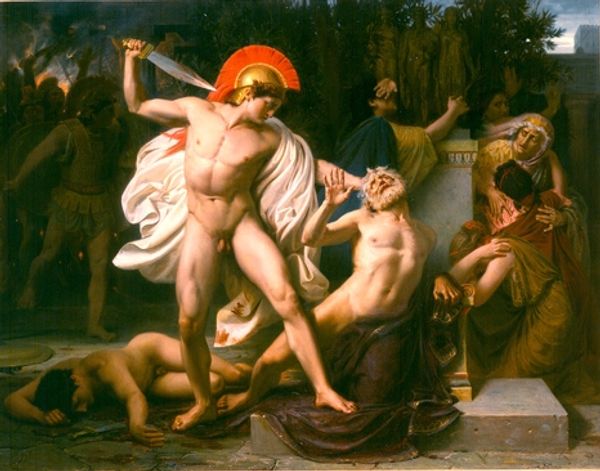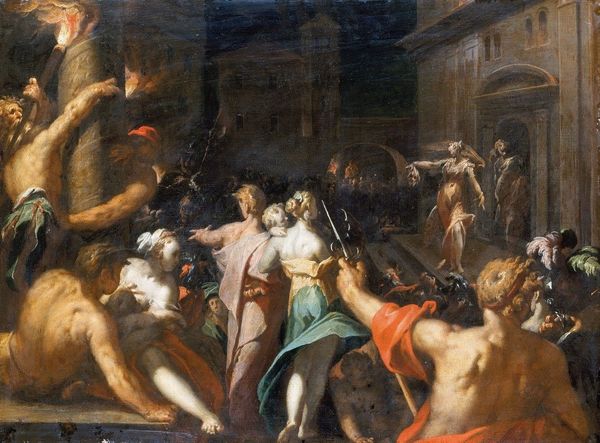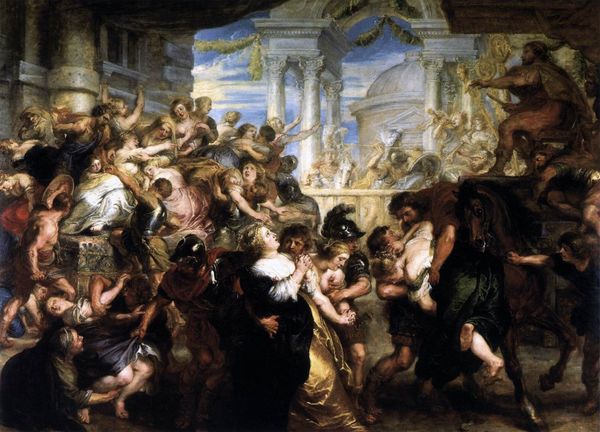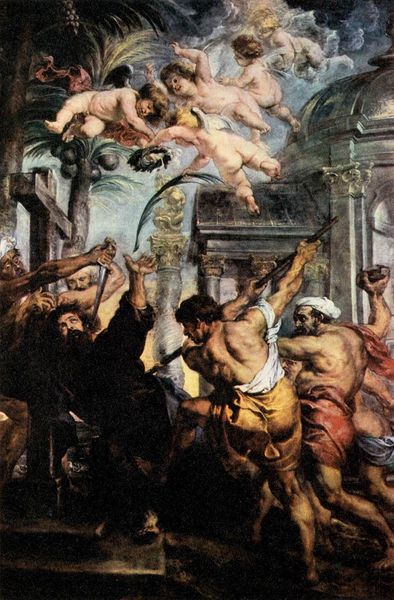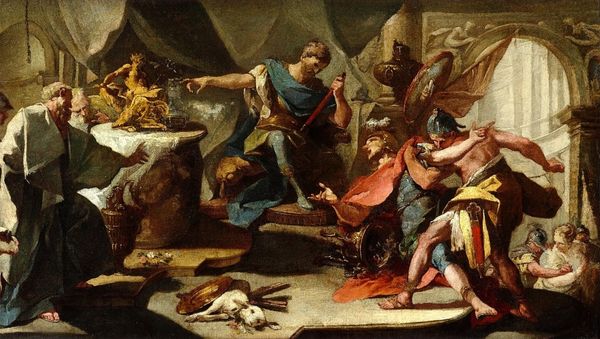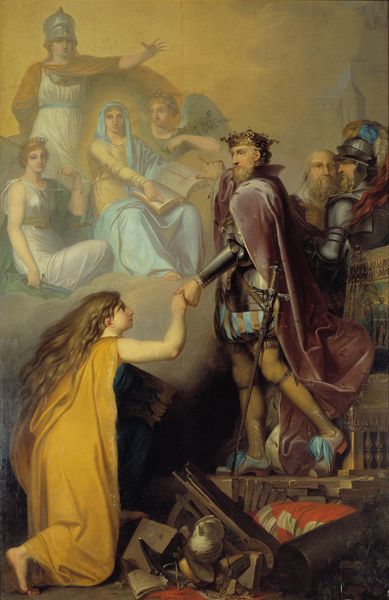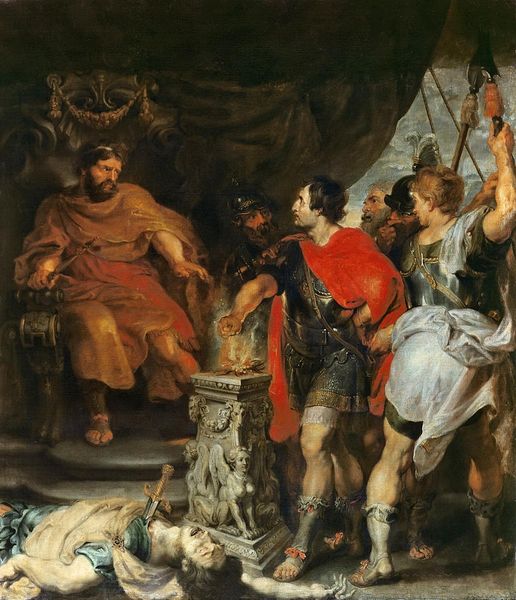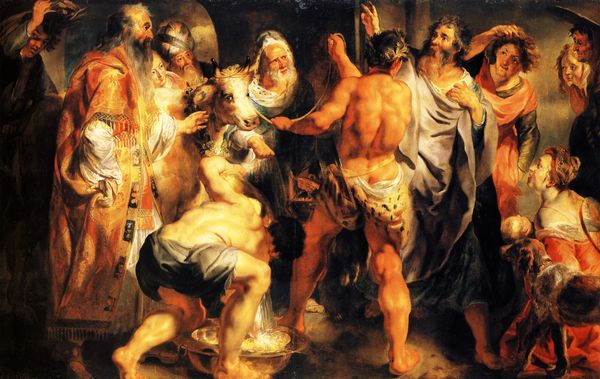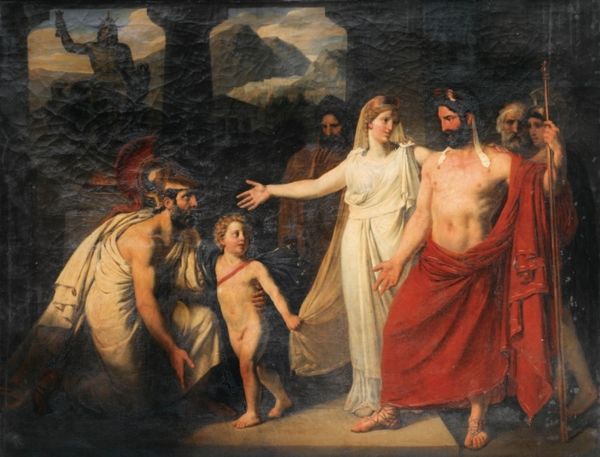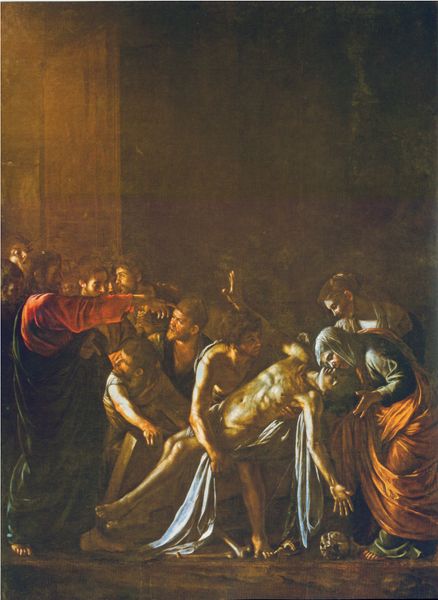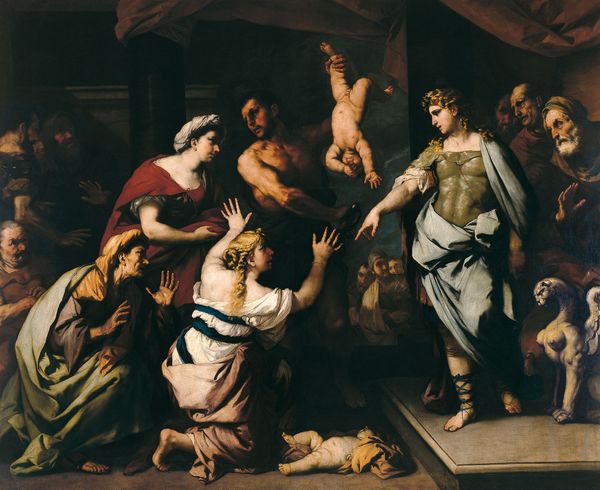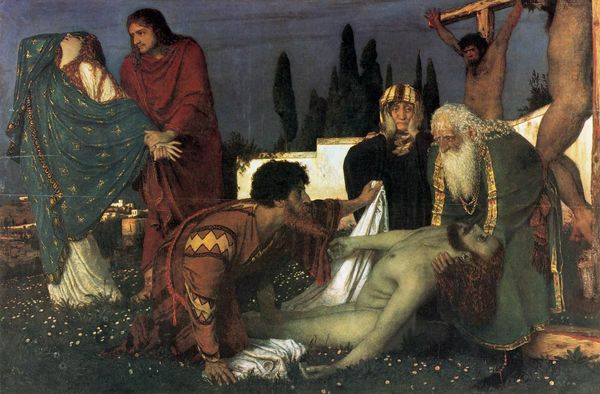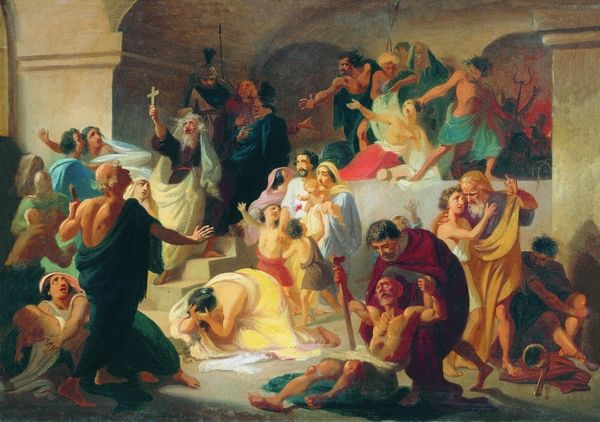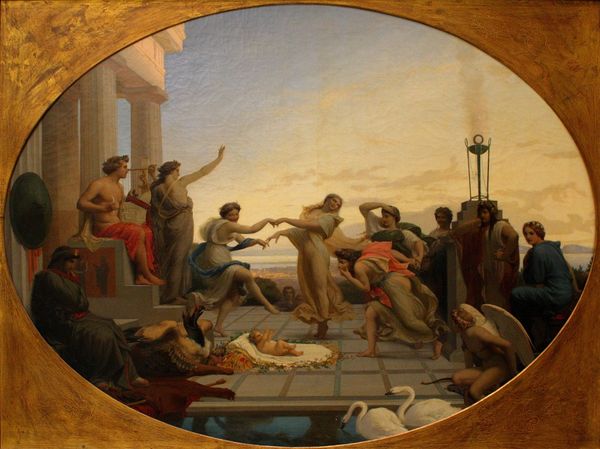
Copyright: Public domain
Curator: This oil painting is "Orphée Aux Enfers" by Henri Regnault, completed in 1865. Editor: The heavy atmosphere strikes me immediately; it's murky, subterranean. I'm interested in the layers of darkness contrasting with the highlighted figures, especially Orpheus with his lyre. What kind of surface are we seeing here? Curator: Regnault's canvas invites us to descend into a world brimming with symbolism. Orpheus, wreathed in laurel, isn’t merely playing music; he is invoking the power of harmony to transcend the boundary between life and death, to sway the underworld’s denizens. Look how he casts his arm, in the familiar pose of orator or maestro! Editor: True, but how meticulously wrought is his performance compared to what, I suspect, is quickly applied paint in the shadows and broader forms? The visible brushwork is intriguing; the implied labor really contrasts with the seemingly idealized story we all think we know. Were these figures posed from life, perhaps from the Opera of that era, or wholly invented? Curator: The figures surely would have taken inspiration from studio practice. However, look closer at their faces, how the paint brings alive this concept of figures languishing, a reflection of their inner states – regret, yearning, resignation. This evokes the universality of loss, connecting ancient myth with timeless human emotions. Even now, how are our social ideas echoed here? Editor: Right, and you know I'm looking at the physical rendering. I’m compelled to notice the materiality of paint to translate complex ideas. The pigment is clearly built up in layers, but there is a clear hierarchy in where he used that labor – Orpheus looks much more polished. This reminds me that classical skill, access to art training and resources are never truly a universal cultural patrimony but often unevenly distributed based on wealth. Curator: Yes, an imbalance perhaps even the artwork comments on within its scene. Editor: It’s something to reflect upon. This work demands we unpack our assumptions about myth and art itself. Curator: And by delving into this romantic rendition of Orpheus, we can connect to those stories, their universal, albeit imbalanced, symbolic significance for us still today.
Comments
No comments
Be the first to comment and join the conversation on the ultimate creative platform.
